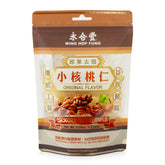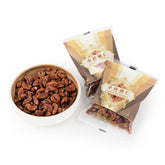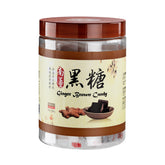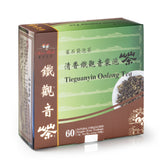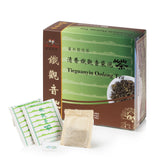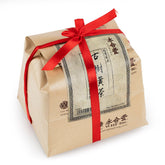Autumn Flavors

Sweet, cooling, and moistening are flavors and textures that enrich our lungs and enhance breathing.
Traditional Chinese Medicine TCM associates the lung/large intestine energy system with the season of Autumn. Our lungs and immune system experience a particular vulnerability at that time also with cold, dry weather or non-nourishing foods. Because of this seasonal transition, we especially want to prioritize the care and nourishment of our lungs with foods that are warm, cooked, spicy and moisturizing to sooth delicate tissue and energize breathing.
Our deep, relaxed breath gives us clarity, vitality and hope. Inhalation and exhalation, receiving and releasing the breath of life, maintains the healthy functioning of our lungs and protects one of the most fundamental processes in our body by energizing our cells and releasing toxins. In Traditional Chinese Medicine the lungs are not only responsible for respiration but also for regulating fluid secretions (perspiration) and disseminating the protective Qi of our immune system called Wei Qi.
Wei Qi
Wei Qi circulates outside the channels of the body, in the space separating the muscles and the skin where exterior pathogens first invade. This space is often referred to as the “Lung's Defensive Qi.” Since Wei Qi is related to the Lung organ system, anything we do to strengthen the lungs will strengthen the Wei Qi and our immunity. For example, practicing breathing meditation, stimulating acupuncture points along the Lung meridian by tapping the length of our arms from shoulders to thumbs and reverse, and by using pungent essential oils such as eucalyptus--these will benefit the lungs and the Wei Qi.
Wei Qi (which maintains immunity when the lungs are well-balanced and strong) acts like an energetic barrier against external threats to our vitality. Ancient Chinese medicine texts hold that cold air and illness carried on evil winds (germs and epidemic disease) penetrate our defensive barrier (our Wei Qi) to make us sick. By strengthening that barrier with nourishing foods and strengthening health practices we may protect immunity.
Certain tonic herbs and healing soups add revitalizing fluids to our diet and strengthen our lungs and immunity. We need adequate Qi in order to be able to inhale and exhale.
Moistening Herbs that Refresh the Lungs
Certain moistening rejuvenating herbs can protect delicate organ tissue and fortifying tonic herbs can energize our lungs and protect our vital energy.
American Ginseng is an adaptogenic herbal tonic that is cooling, moistening and energizing for our breathing and immunity. It enhances necessary fluids in our lungs, stomach, and kidneys, and combats fatigue and depression from environmental smoke and toxins. It can be brewed as tea, added to soups or soaked and enjoyed in recipes calling for root vegetables.
Monk Fruit (lo han guo) a sweet pod corrects dry cough and shortness of breath due to its cooling, Yin replenishing nature. Healthier than sugar, monk fruit can be added to teas or recipes and is safe for those of us with diabetes. Crack and simmer the pod for up to 5 minutes and use the liquid as a healthy natural sweetener that is sweeter than sugar.
Teas
All Chinese teas are digestive, fortifying and detoxifying for enhanced digestion, breathing and mood balance. Green tea and oolong are cleansing and brighten vitality. Pu’Erh teas are special digestive teas that protect the heart by helping to reduce harmful cholesterol. Pu’erh’s earthy flavor is grounding and very satisfying.
Spices
We fortify our digestive and emotional center with pungent herbs and spices such as ginger, pepper, cumin, coriander, and fennel seed.
Soups
Soups are an ideal food, hydrating and easily digested, especially helpful when we are feeling depleted. Warm soups, adding digestive spices and tonic herbs, are comforting as the days become shorter, darker and colder.
Chinese Tonic Herbs for enhanced Immunity
Reishi mushroom (Ganoderma lucidim or lingzhi) is a Qi tonic superfood, and precious healing tool that supports health and longevity. It is immuno-regulating, anti-inflammatory and a choice herb for any immune deficiency disease. Reishi slices can be added to cook with soups. Or make a strong water extract by cooking one reishi mushroom at low heat in a slow cooker (crockpot) for 8 – 10 hours. Reishi tastes bitter. The liquid can be sweetened by adding a handful of jujube red dates or monk fruit and can be stored refrigerated for up to one week.
Lotus seed and dried citrus peel (chen pi) strengthen the digestive center by drying phlegm, reducing bloating and increasing digestive Qi.
Reishi Lotus Seed Soup
This slightly warming soup is excellent for invigorating digestion and improving appetite, nourishing the body after illness or physical weakness, and in cases of insufficient blood circulation, or dizziness.
Ingredients:
- 1 handful of sliced dried reishi
- 100 grams (1 cup) of lotus seeds
- 1 piece of dried citrus peel
- enough water to cover
Simmer all ingredients for 2-3 hours until the lotus seeds are soft. Chicken pieces can be added to the cooking for extra nourishment. Sweeten to taste with salt, pepper and monk fruit.
Tremella-Red Date-Goji-Pear Soup
This sweet fluffy soup is cheery and light. It looks pretty and is easy to make. Tremella (AKA Yin Er, snow mushroom, white fungus) is considered the “Fountain of Youth” in Chinese medicine and is recommended for many health benefits. It reduces inflammation, boosts the immune system, supports lung function, and helps maintain clear, glowing skin. This tasty soup is used to moisten, cleanse, and rejuvenate the lungs.
Ingredients:
- 1 dried tremella white fungus
- 8 red jujube dates
- 20 goji berries (also called wolfberries)
- 1 pear, cored and sliced
Soften one piece of tremella by soaking overnight in water; with a knife or scissor remove the dark yellow core on the back and cut the tremella into 4 pieces. Into a pot, add the tremella, dates, goji berries, and enough water to cover, and simmer for up to 45 minutes until the tremella is fully soft and fluffy. Add the sliced pear and simmer for 5 more minutes.
Sweet, savory, juicy and delicious are flavors that bring happiness and health in Autumn, a glow to our skin and a song in our heart.

